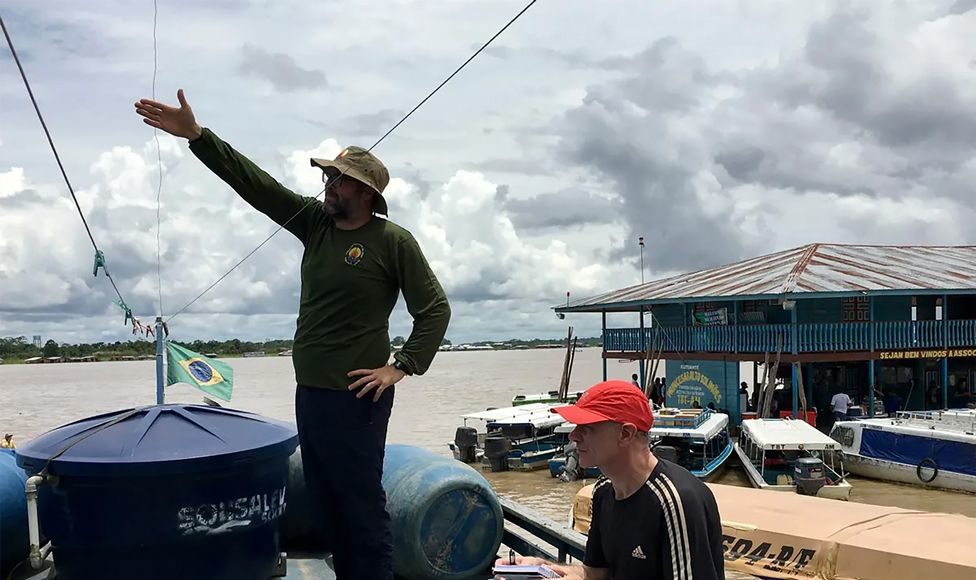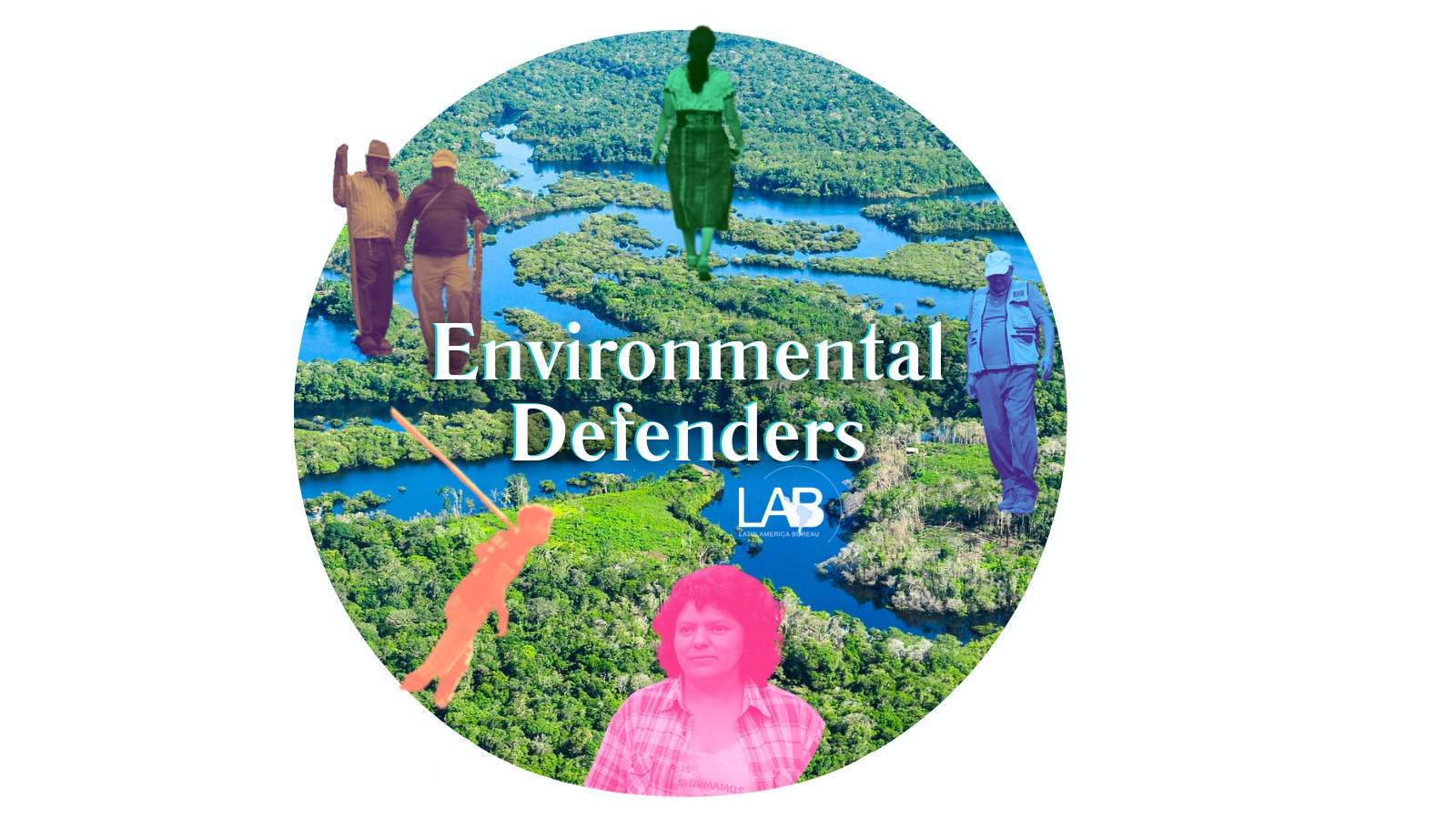The cruel assassination of two well-known and well liked men, a Brazilian indigenist expert and an English journalist, has revealed the remote Javari valley in the far west of the Amazon region to be not only home to Brazil’s last isolated indigenous groups, but a centre of criminal activities.
When I first travelled there over fifty years ago, Tabatinga was a sleepy town where nothing happened. Now it has become the centre of a criminal network of drug traffickers, poachers of protected species of fish and turtle and illegal loggers and miners who invade indigenous territories with impunity and have turned the region, in the words of a Supreme Court judge, into a parallel state.
It was into this minefield of crime that Bruno Pereira and Dom Phillips travelled at the beginning of June. Bruno had come to know the area and its inhabitants well as the local FUNAI coordinator charged with protecting isolated indigenous groups who live in a demarcated area, but whose survival is now threatened by the criminal gangs.
He became persona non grata within FUNAI after organizing a major operation in the Javari Valley area which destroyed the miners’ dredges and machinery. By this time, 2019, FUNAI had been taken over by Bolsonaro appointees, military or police officers, replacing qualified anthropologists. Bruno took unpaid leave and became an adviser to UNIVAJA (Union of Indigenous Peoples of the Javari Valley) set up by local indigenous leaders. They took on the even more difficult task of protecting indigenous communities, both isolated and contacted, in the absence of FUNAI, which abandoned its constitutional mission to protect them as soon as Jair Bolsonaro took office.
Ignorance and contempt
Bolsonaro has always made his aversion to the indigenous population very clear, not just when he declared that, if elected, he would not demarcate 1)measure and officially register the boundaries of indigenous territories one centimetre of their land, but years before as a congressman when he praised the US Army’s competence in exterminating the American native population and regretted that the Brazilian Army had not done the same.
The President’s every remark about Brazil’s increasingly organized indigenous peoples has shown not only his profound ignorance but also his contempt for the culture, customs and intelligence of another ethnic group. For Bolsonaro, the value of the indigenous areas is not their contribution to preserving the rainforest, and therefore the climate, but the minerals, especially gold, which lie beneath many of them. Not that the mining of tons of gold in the Amazon has brought any improvement to the lives of the local population, because most of it has left the region illegally, untaxed, and has instead ushered in violence, prostitution and degradation.
Marcio Santilli ex-president of ISA said that a person like Bruno, with years of accumulated experience, and prepared to work in a place like the Javari, is a tremendous asset to the indigenous cause and will be deeply missed.
When Dom Phillips asked Bruno to accompany him on a fact finding trip to the region, he did not hesitate. Dom was originally drawn to Brazil by the vibrant electronic music scene, about which he wrote in England, and he produced a book about DJs. He became a collaborator of international newspapers, especially The Guardian, and then, like so many others before him, became fascinated with the Amazon. He began writing a book , How to Save the Amazon, and travelled around the region interviewing people in the small riverine and indigenous communities and investigating the illegal activities of the poachers and goldminers.
‘Why all the fuss?’
When the two men failed to turn up at a planned rendezvous with UNIVAJA members in the small town of Atalaia do Norte, the indigenous organization immediately raised the alarm, and set out to look for them, but it took several days before the authorities mobilized forces to join the search for them. On every step of their journey they had maintained contact with colleagues and family, recording their activities.
Yet Bolsonaro insisted Bruno and Dom had gone on an adventure, unprepared, without equipment, support, or authorization. All these accusations turned out to be untrue. In his distorted view, Dom was ‘malvisto’ by garimpeiros (small-scale illegal prospectors who are now more likely to be employed by ‘entrepreneurs’ who provide the heavy machinery used, food and other supplies) because he wrote about their illegal activities, which is the same as saying that anyone who writes about criminals is not well thought of by them.
From the beginning, Bolsonaro’s comments on the case have revealed not just his chilling cynicism and lack of solidarity, but also that he probably knew exactly what had happened to them. When everyone was talking about their disappearance, he casually mentioned that they might have been ‘executed’. On Wednesday, hours before the bodies were discovered, he announced that the outcome was near. And when a Supreme Court judge ordered the search to be stepped up, he replied that over 120,000 Brazilians were missing, so why so much fuss about these two?
The small fry are arrested
On Wednesday, one of the suspects, Amarildo da Costa de Oliveira, arrested two days after the disappearance, allegedly confessed and took the police to where the two men’s bodies had been burned and buried. At the press conference called to announce the discovery of the remains, the federal police chief who made the announcement was flanked by a row of uniformed men from the Army, the Navy, the Fire Service, various police departments. There was not a single representative of UNIVAJA, the organization which had led the search and discovered the place where the bodies were eventually found.
An Army general rattled off a list of battalions, platoons and barracks in the region. But nobody asked him why, with so many hundreds of soldiers in the area, and the Ministry of Defence with its largest ever budget, the army had been impotent to defend the frontiers against the drug traffic now rife in the region, and stop the illegal traffic in turtles, pirarucu fish, timber.
Bolsonaro, who likes to insist that ‘the Amazon is ours’ and that it’s a question of national sovereignty, seems quite happy for a large chunk of Brazil to have fallen into the hands of criminal organizations. For him, they are not the problem. The problem is nosy journalists and indigenous rights defenders who insist on investigating the crimes.
Bruno and Dom were killed not because they had done the wrong thing but because they were doing the right thing. For now the small fish have been arrested, but what of the big fish behind the murders? Who ordered their killing? How did Bolsonaro know what had happened to them before it became public? UNIVAJA said, ‘We know that (the two suspects) are part of a larger group. We are concerned for our lives and those who have been threatened, because Bruno Pereira was not alone. What will happen to us when the armed forces and the press leave Atalaia do Norte? Will we continue to live under threat? We need to deepen and broaden the investigation.’
The federal police returned from the forest with black plastic body bags. To see police agents carrying those black plastic bags and to know that inside them were all that remained of the two vibrant, committed, well-loved men who had gone together into the rainforest to gather information, support indigenous and local communities and report on the situation was infinitely sad. This is the destiny that Brazil reserves for so many of those who try to defend the Amazon and indigenous peoples, whether uncontacted or organized.
Now there is indignation and revolt that once again those who fought to preserve the Amazon rainforest and those who live in it, have paid with their lives – as so many others did before: Chico Mendes, Gringo and other union leaders, Dorothy Stang and other Catholic missionaries, and countless leaders of rural and indigenous communities. I only knew Dom slightly, but my daughter Ali and son Camilo knew him well and described him as kind and generous. The loss of Dom and Bruno will be keenly felt not just by family, friends and colleagues but by the people they wanted to help, whose stories they wanted to tell.
Main image: Dom Phillips and Bruno Pereira. The Guardian.
Article edited on 24 June 2022: Bruno Perreira acted as an adviser to UNIVAJA, which was set up by local indigenouse leaders.
References
| ↑1 | measure and officially register the boundaries of indigenous territories |
|---|


